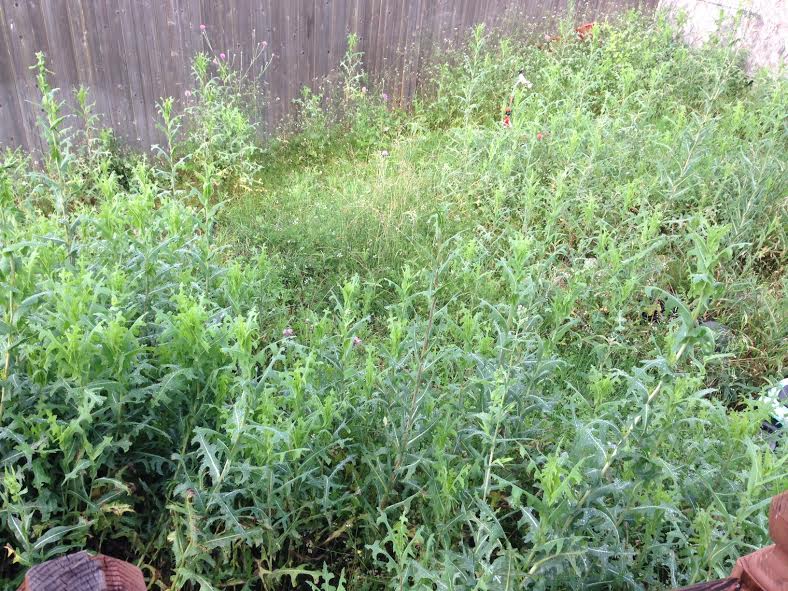
by Rachel Toalson | Messy Mondays
Welcome to my backyard.
It’s been raining for 30 days here in Texas. It’s bizarre. Usually around this time of year we’re crying about how we need rain because all our gardens are dying. Well, our gardens are still dying, but this time it’s because they’re all drowning.
We haven’t been able to push a lawnmower back here because the ground is a mud pit. The weeds are taller than my kids, which means I can’t sent them out to play. Which means Mama’s losing her head.
Not that I could send them out anyway. Like I said, it’s a mud pit out there, and have you seen what boys can do with mud? They smear it EVERYWHERE. In their hair, between their toes, inside every crack they have.
I know I’ll probably regret this later, when it’s so dry and hot we won’t be able to properly swallow, but I wrote a little ditty for Rain. It goes a little something like this:
Rain, Rain, go away
Help a mom stay sane today.
I love you, Rain, but seriously. Go away.
If it doesn’t stop raining soon, I swear these weeds are going to grow legs and run us out of our house.
On another note, if anyone has a machete we could borrow, we’re going to need it to get through this wilderness. Also, some full-body armor, since there’s no telling what kind of surprises are lurking in such a hostile forest.
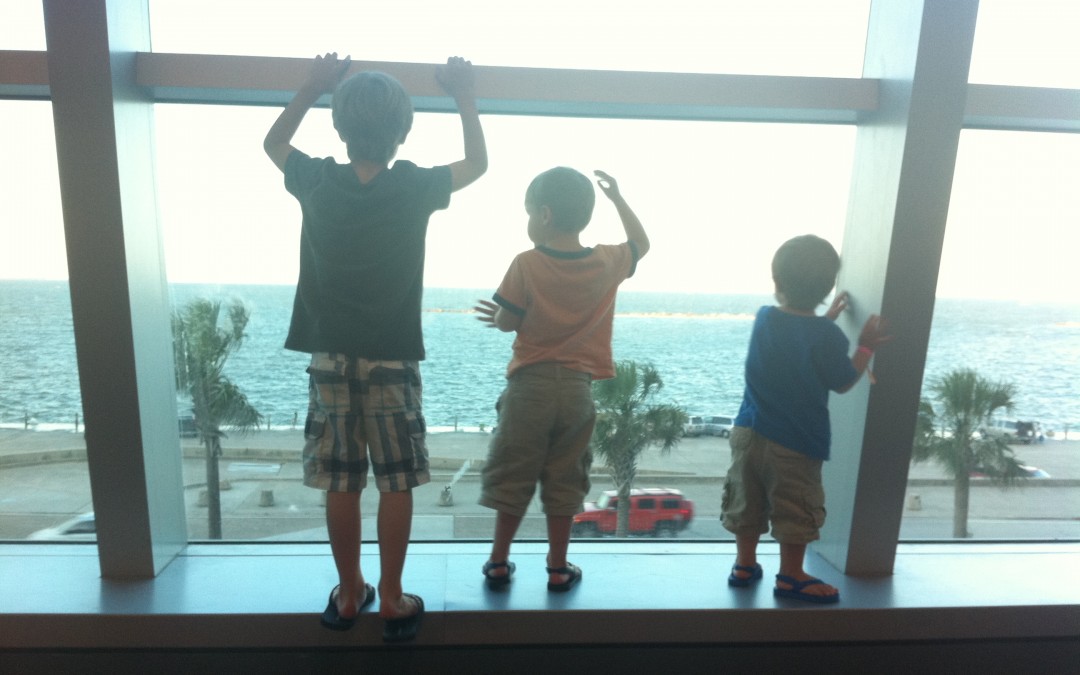
by Rachel Toalson | Wing Chair Musings
I feel the annoyance creeping in, because it’s the third time this morning I’ve tried to finish this sentence—just this one sentence—and the boys are fighting again, so the baby starts crying and then someone says those dreaded words: “I’m telling Mama.”
It’s unusual that I’m working right now while they’re playing, but I sent some facts to be checked, and the source confirmed them late, and I have to finish this one little sentence, just seven words, to get it sent off before deadline.
But a little boy is shaking my arm, trying to tattle on a brother who took his toy, and I drop my head and let out the longest sigh in the history of air and say, “Can you just let me finish this one little thing? Just this little thing?”
He cries and blubbers and shakes my arm some more, so I shut the laptop harder than I intend to, and I can feel all the wrong words exploding from my mouth.
Sometimes being a writer and a mother feels dang near impossible.
“I don’t know how you get it all done and still have time to be a good mother,” my friends and family occasionally say.
I understand the question, because mothering is hard and mothering is intensive and mothering is never-ending. When in the world would I possibly have time to write?
How does a good mother become a good writer? How does a good writer walk away from the writing desk still a good mother?
How does a woman change diapers and spend time with her children and kiss the booboos that happen every other minute and build a star out of shape blocks and still put coherent thoughts down on a page?
We become mothers and believe that’s just the end of our story.
But I want you to know it’s not. Not if we don’t want it to be.
///
When I was 4 years old, I could already read, mostly because my 10-months-older brother came home from kindergarten and taught me everything he learned that day in class.
Reading opened up a whole new world for me, and I loved it so much I wanted to contribute to it. So I sketched out my first stories, with characters called Laura and Mary Ingalls, who would get into the same adventures my brother and sister and I would get into—meeting the ghost in the tree house out back, playing a risky game of dodge ball with the millions of pecans carpeting our backyard, building forts out of blackberry brambles before we knew they were mostly just ready-made snake nests.
I knew early on that I wanted to be a writer. I knew I wanted to write kid lit. I knew exactly what I had to do to get there.
I told everyone I knew of my plans. They agreed and nodded and patted me on the head with smiles that spoke of great amusement that here was a little 5-year-old telling them what she wanted to be when she grew up, already, and watch how she would change those plans when she got older and real life happened.
Except the plans never changed.
They didn’t change when I went off to college and was encouraged by a guidance counselor to major in a field that would actually pay, so I picked journalism. I wrote out my stories longhand in the extra hours between classes.
They didn’t change when I married my husband and I got my first job at a large newspaper in Texas. I wrote my stories in the hours between dinner and sleep.
They didn’t change when we had our first baby and started talking about the possibility of quitting our jobs and pursuing music together. This time, though, there was no time to turn plans into pursuit.
So I put them on hold.
///
I didn’t know they would be on hold for so long.
I didn’t know that my husband would quit his job and I would stay at mine, because it was flexible enough to allow travel and there was another baby on the way and someone had to get a steady paycheck to make sure we stayed caught up on our budget.
So I worked as a managing editor and took care of the baby and spent evenings practicing or playing gigs or trying to get some sleep even though there was so much, always, to do.
You couldn’t really see it from the outside, but I was withering into only a piece of who I am.
A piece doesn’t live like a whole does. A piece has only a matter of time before it dies, cut off from the whole.
I was slowly dying, and no one could even tell.
///
Six years later I still felt stuck, working a job I hated, trying to make ends meet, trying to love kids well, trying to just keep up, trying to feel fulfilled.
But all those stories were burning holes clean through me, and they kept getting deeper and wider and blacker.
I snapped at children and picked fights with my husband and became a person I didn’t really like, because I felt so dried up inside.
It didn’t matter that I had all these beautiful boys or that my husband has only ever been supportive or that I got to work my job mostly from home so I got the best of both worlds—designing pages and editing articles while my kids romped around in the same room.
It mattered that I wasn’t writing. It mattered that I could not create all those stories that had lived in my imagination for more than a decade.
So I started taking moments where I could. When my boys were eating breakfast and we’d finished the morning devotional, I jotted down story ideas. When they napped, I crafted essays and chapters. When they went to bed at night, I wrote random thoughts in a nightly journal.
When I read to them, I picked books that would make me a better writer. When we engaged in our after-dinner family time, we incorporated a writing time and independent drawing time for the littlest ones. When school let out for the summer, we brainstormed a family story-telling project.
Slowly, slowly, slowly, I started coming back to life.
///
It’s never easy, being a mother who writes.
I feel the pressure of do-it-all and try-to-look-perfect and volunteer-for-everything-at-my-kids’-school.
I know many mothers who feel it, too.
We want to be the best mothers we can be. We want to have perfectly clean and put-together houses. We want to spend the most time we can in our kids’ classrooms so the memories they have at school are always associated with us, too.
We want to keep on top of laundry and cook the best and healthiest meals and organize an afternoon of pure fun for our children.
Because we just love them so much.
But we can’t do it all. We just can’t.
So we need to stop trying.
There’s an easy answer to the question, “How do you do it all?”
The truth is, I don’t.
If you were to come to my house on any given day, you would see a thick layer of dust on the bookshelves, because I was busy building a flower garden out of shapes with my 3-year-olds this morning and every other morning for the last three months. You would see the mess the 4-year-old made with his crayons and art paper during his Quiet Time today, because he no longer naps and I needed to make the deadline on an article. You would see that tonight we’re having raw carrots and raw cucumbers tossed in a bowl, along with the chicken that’s been simmering in the crockpot all day, because I had a lot on my mind that I needed to get down on paper.
You would see that the laundry has yet to be put away, even though I finished it three days ago. You would see that the 6-year-old frequently bursts into my room when I’m in the middle of an essay and asks if I’ve seen the other Spider-Man sock that went missing. You would see that sometimes, when I’m sitting in my wing chair crafting a chapter on a novel, my 8-year-old will sneak quietly in and sit in his daddy’s wing chair without saying a word for a whole hour, just because he wants to be near me.
This is what it looks like to be a writer and a mother.
It doesn’t look perfect. It doesn’t look neat all the time. It doesn’t even look completely consistent, because sometimes someone throws up on the carpet and needs Mama to lie down beside him so his tummy feels better. Sometimes the twins won’t stop fighting over who gets which train and Mama has to step in to defuse emotions. Sometimes the biggest boy threatens he’s going to run away and I have to talk him out of it.
Some days all I can be is Mama.
That’s okay, too. Because do you know what living does? What engaging with our children does? What being a mama does?
It makes our writing richer.
Maybe we will always feel this tension between creating and mothering. Maybe we will always hear the voice that whispers we are being selfish in our pursuit and we should just be content with being a mother. Maybe we will always feel guilty that we want and need something more.
But what I have learned in my years being a writer and a mother is that I am a better wife and mother and person because of my creating.
This is whole-hearted living.
And it’s way better than doing it all.

by Rachel Toalson | On My Shelf
On my shelf this week:
Writer Mama: How to Raise a Writing Career Alongside Your Kids, by Christina Katz
Very Good Lives: The Fringe Benefits of Failure and the Importance of Imagination, by J.K. Rowling
The Dovekeepers, by Alice Hoffman
This week I’m looking into raising a writer career (I already know most of this, as a freelance journalist, but the reminder and intentional practices has been good), an inspirational speech-book by J.K. Rowling and a historical fiction book recommended to me by my librarian mom.
Best quotes so far:
“Failure meant a stripping away of the inessential. I stopped pretending to myself that I was anything other than what I was and began to direct all my energy into finishing the only work that mattered to me. Had I really succeeded at anything else I might never have found the determination to succeed in the one arena where I believed I truly belonged. I was set free, because my greatest fear has been realized, and I was still alive…”
J.K. Rowling.
“Rock bottom became the solid foundation on which I rebuilt my life.”
J.K. Rowling
“It is impossible to live without failing at something, unless you live so cautiously that you might as well not have lived at all—in which case, you fail by default.”
J.K. Rowling.
“The knowledge that you have emerged wiser and stronger from setbacks means that you are, ever after, secure in your ability to survive.”
J.K. Rowling.
“Imagination is not only the uniquely human capacity to envision that which is not, and therefore the fount of all invention and innovation; in its arguably most transformative and revelatory capacity, ti is the power that enables us to empathize with humans whose experiences we have never shared.”
J.K. Rowling
“We do not need magic to transform our world; we carry all the power we need inside ourselves already; we have the power to imagine better.”
J.K. Rowling
Read any of these? Tell us what you thought.
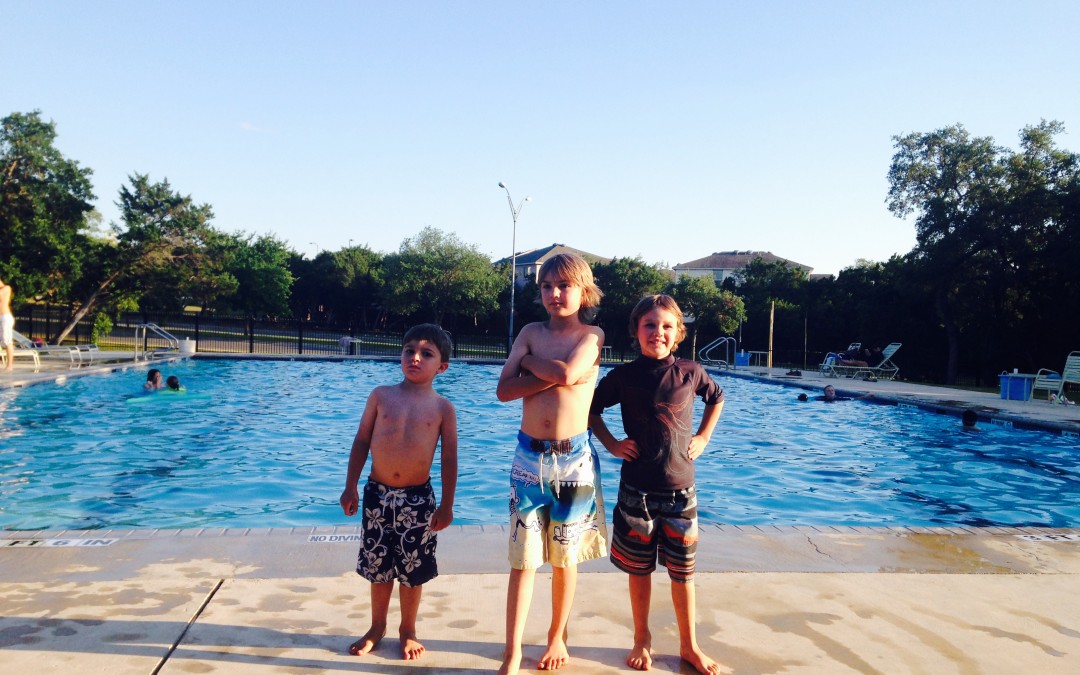
by Rachel Toalson | Stuff Crash Test Kids say
What I’ve been wondering my whole life
Asa (5): “Mama, there are some things I’ve been wondering my whole life. Like, since I was 1 and 2 and 3 and 4 and 5.”
Mama: “Oh yeah? What’s that?”
Asa: “I’ve been wondering where bites come from and how they make bumps on you. And how babies come out of you and why girls don’t have penises.”
Me: “Wow. Those are some really good questions. We’ll put them on our I Wonder Wall.”
Because then I don’t have to answer them right now.
The boy who could fly
Mama: “Be careful out in the tall grass.”
Boaz (3): “There may be snakes.”
Mama: “Yeah, and other things.”
Hosea (4): “Well, they can’t get me because I can fly.”
What’s in that diaper?
Changing the baby’s diaper:
Mama: “Wow. That’s a lot of poop.”
Zadok (2): “Yeah. That looks like guacamole poop.”
Go check your pants
Asa (6): “Ow! My booty hurts because of my toot. Sometimes that happens.”
Hosea: “Yeah. That happens to me when I have diarrhea.”
How to impress a high school student
The 8-year-old got some art displayed at the high school art show. After it, here’s what he said.
Jadon: “I think I just saw some high school kids and I might have even impressed them by running and jumping and changing direction in midair.”
He has so much to learn.
A nice way of saying ‘I hate you’
Jadon: “When you’re dead, Daddy, I’m going to poop on your body.”
Romantic musings of a 4-year-old
Hosea: “Mama, I saw a picture in a picture book of when you and daddy got married, and you shared a true love’s kiss. I asked daddy if it was true love’s kiss and he said yes.”
Ask a question, get an answer
Daddy: “Do you know what’s really good for your teeth?”
Hosea: “Toothpaste.”
Daddy: (Pause.) “That’s really good for your teeth, too, when you use it on a toothbrush. But also apples. Apples are really good for your teeth.”
Hey, look. It’s Random Man.
Hosea: “Mama, I want to wear my batman shirt to Nonny and Poppy’s.”
Mama: “OK. You’re not going there until tomorrow morning, though.”
Hosea: “Well! I don’t like salmon!”
Mama: “What does that have to do with Nonny and Poppy’s house and your Batman shirt?”
Hosea: “Well, I don’t burp anymore. I just toot.”
Try to follow THAT conversation.
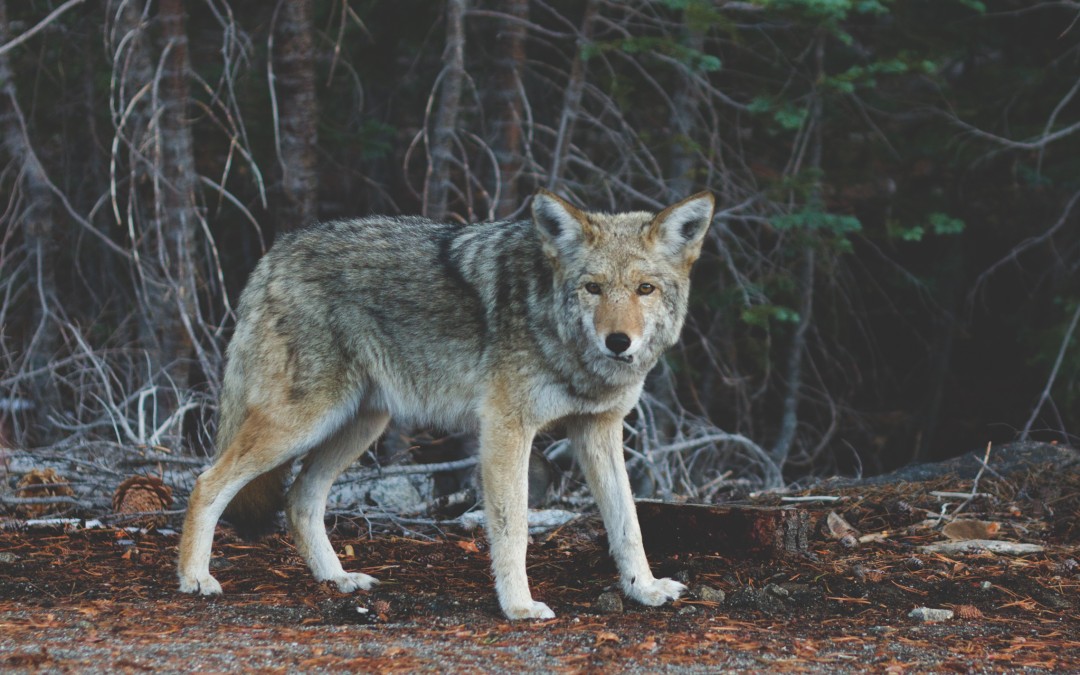
by Rachel Toalson | Fiction in Forty
He came around every now and then. A beautiful creature. He would watch me while I sat writing. Sometimes he would venture closer than any wild animal should, telling me something.
And then one day he walked out a man.
Ongoing challenge: Find (or take) a picture. Write exactly 40 words about it. Post.
(Great practice for brevity.)
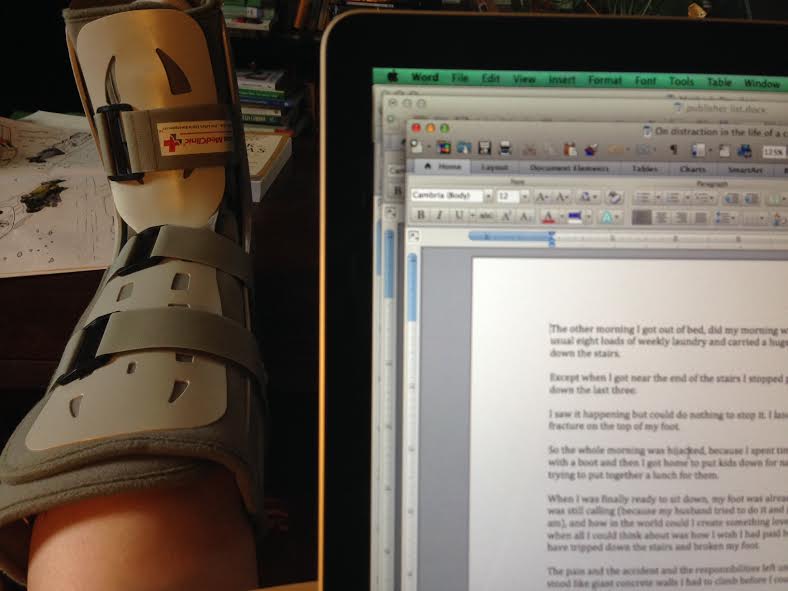
by Rachel Toalson | This Writer Life
The other morning I got out of bed, did my morning writing, worked out, sorted the usual eight loads of weekly laundry and carried a huge hamper full of dark clothes down the stairs.
Except when I got near the end of the stairs I stopped paying attention and tripped down the last three.
I saw it happening but could do nothing to stop it. I landed so hard I got a hairline fracture on the top of my foot.
So the whole morning was hijacked, because I spent time with a doctor and time with a boot and then I got home to put kids down for naps after hobbling around trying to put together a lunch for them.
When I was finally ready to sit down, my foot was already throbbing, and laundry was still calling (because my husband tried to do it and just isn’t as good at it as I am), and how in the world could I create something lovely and eloquent and useful when all I could think about was how I wish I had paid better attention so I wouldn’t have tripped down the stairs and broken my foot.
The pain and the accident and the responsibilities left undone because of them stood like giant concrete walls I had to climb before I could focus on creating anything of value.
Sometimes artists have days like this.
Sometimes the kids get sick, and we worry about them and they just want to be near us and creativity flies right out the window every time they cough in their sleep or try their hardest to make it to the bathroom and inevitably fail so it’s all over the carpet instead.
Sometimes the doorbell will ring when we’re right in the middle of flow, right in the middle of writing a word, because the lawn team mowing our neighbor’s yard noticed you might need help with ours.
Sometimes we will trip on our way down the stairs or smash our finger in the car door or cut our hand trying to slice an apple.
Distractions will come in the life of artists—because we are living life (and if we aren’t, our art suffers anyway).
We can’t avoid the distractions, so we must learn to overcome them.
The thing is, we can be made better artists on the hard-to-create days.
If we create anyway.
Because do you know what distraction learns in our creating anyway? It learns that it has no real power over what we decide to do, no real power over us.
What distraction wants is for us to give in. Stop creating. Put it off until tomorrow, or the next day or the one after tha tone.
We can’t. We won’t.
We will create anyway.
Even if we can feel our heartbeat in our foot, we will create. Even if the doorbell rings, we will create. Even if the baby didn’t sleep last night, we will create.
What we create in the face of distraction may not be our best work or even close to it, but it is still practice. It is still valuable.
Distraction still doesn’t win the day.
So that day, even though my foot throbbed and my brain felt foggy and my words didn’t want to come out from hiding, I wrote.
I threw everything out, started over from the beginning all the days after, but I still made something out of nothing.
Distraction did not win.
Challenge: Think of your most common distraction. Write a letter to it. Be serious or funny, but most of all be honest. Tell it you will create anyway—and then do it.

by Rachel Toalson | General Blog
This year my husband shared a birthday with Mother’s Day.
He’s been just the tiniest bit overlooked for most of our parenting life because his birthday falls so close to Mother’s Day, and all these boys in our house would much rather celebrate Mama than Daddy.
So I didn’t want the week to go by without expressing just what he’s meant in my life and the life of my children.
When we were 18 and 19, Ben traveled to my hometown with me, because we were in a band together and were booked to play a concert. He stayed with some of my mom’s friends.
“You’ll marry that man,” my mom’s friend told me on the last day.
It was before I was even interested in him THAT way, so I shook my head. “No way,” I said. “We’re just friends.”
My mom’s friend shrugged. “Okay,” she said. “But you’re going to marry him. Want to know how I know?”
Of course I wanted to know how someone knew who my future husband would be.
“Because of that,” she said.
She pointed at him, sitting in the middle of a circle of children. They were all giggling hysterically, and when he stood up, they followed him like the Pied Piper.
Two years later, I did marry him.
In the eight years we have parented our boys, I have watched him grow into one of the best fathers I’ve ever known. He has taught me better ways to love my children just because of the example he is.
Not only that, but he has taught me how to be a better parent, because it all comes so naturally to him.
He has taught me
1. Giggles are never too costly. He will do anything in the world to elicit giggles from his children. He will try to break dance on the carpet, tripping over his own feet. He will bound around the room on his hands and feet like a Daddy gorilla. He will read stories with their names replacing the words (“Shaggy dog, waggy dog, don’t-do-as-you’re Jadon dog.”). He will trip himself on purpose or run into a wall or pretend he’s slapping himself. He will turn them upside down to walk on the ceiling or body slam them on the couch or ask about their feelings in a robot voice. There is never a price too high.
2. There’s no such thing as an embarrassed parent. When his son picked Treasure Island as his birthday party theme, my husband borrowed a pirate costume from his brother and stole my black eyeliner to rim his own eyes and read A Pirate’s ABC with a roughened-sailor accent to all the kids gathered in our living room. When one son started dancing in the middle of the grocery store, because his jam came on over the loudspeaker, my husband joined him. When another son melted on the mulch of the neighborhood playground because he wasn’t ready to go home yet, my husband bent beside him and acknowledged his feelings and the time and what he was expected to do next, instead of walking away and pretending that child wasn’t his (which is exactly what I did).
3. Stories are much more fun when there are accents. My husband reads to his boys every night before they go to bed, and it’s not unusual for me to hear an Englishman reading Imagine a Day or a Spanish man reading Skippyjon Jones or a dopey man reading The Book With No Pictures. When we’re reading Elephant and Piggie books, he has voices for all the characters. He uses his hands. He makes it a show. He says I’m the reason they love to read, but the truth is, he has made books come alive for them. They love reading because of his theatrics.
4. Play is so much better than work. My husband has passed over good jobs because he wouldn’t be home in time for family dinner. He has turned down promotions. He has limited work-from-home hours because he wants to protect family play time after dinner, when he’ll run around the cul-de-sac playing kickball or trying to get a kite in the air or chasing all the kids for an epic game of tag. When it’s raining, he pulls out Jenga and Monopoly and Battleship or makes up his own game of charades. His boys know their relationship is more important than what work their daddy might have to get done at night.
5. Kids are not too young to add value to the world. So many kids feel like they have nothing to offer the world, but my husband lets our boys know they do. He encourages their creativity. He makes up secret codes with them. He designs the book covers for the books they’ve written. He lets them use all the computer paper to make paper airplanes they’ll sell in their art stand out front. He writes silly songs with them. He outlines that hand-lettering piece he drew and lets them color it in. He teaches them, and he lets himself be taught by them. He believes in them, and he teaches them to believe in themselves.
The other day, we were leaving a meeting when all five of the potty-trained boys announced that they needed to go potty. I rolled my eyes, because it happens EVERY time, but my husband laughed and raced them out of the car.
They were walking up wooden stairs, the boys behind him and all around him, and I saw the same picture I’d seen fourteen years ago, all these kids gathered around him just because they love being around a man like him.
I couldn’t help but smile—because it’s plain to see the love he has for them and the love they have for him and the rock of a relationship that has been building since they slid into his life.
How fortunate I am that my boys have a daddy like him.
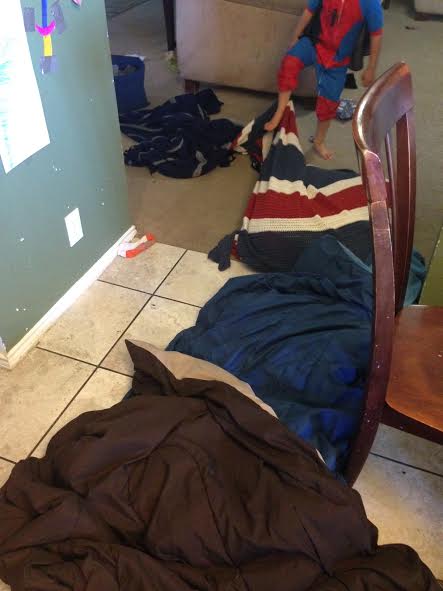
by Rachel Toalson | Messy Mondays
Every passage around my house looks like this.
“We wanted to make an ocean with our blankets, Mama,” they say.
“We wanted to make a LEGO carpet, Mama,” they say.
“The laundry basket is still downstairs, so we made a magic path out of our dirty clothes, Mama,” they say. (The laundry basket is still downstairs, by the way. Because my husband, in his words, is really bad at doing laundry, and last week laundry tried to kill me, too.)
If I didn’t know any better, I’d think my kids were trying to kill me. This fracture boot is hard enough to walk around in without the added dangers of what’s left out on the floor.
There are so many tripping hazards in my house I can’t even get up from the couch. That’s okay, though. I just started a really good book, and now I have a good excuse to sit and finish it.
Go ahead and swim in your blanket ocean, boys. I’ll see you in a few hours.
(Unless you’re drowning. IT’S A BLANKET OCEAN, REMEMBER?)
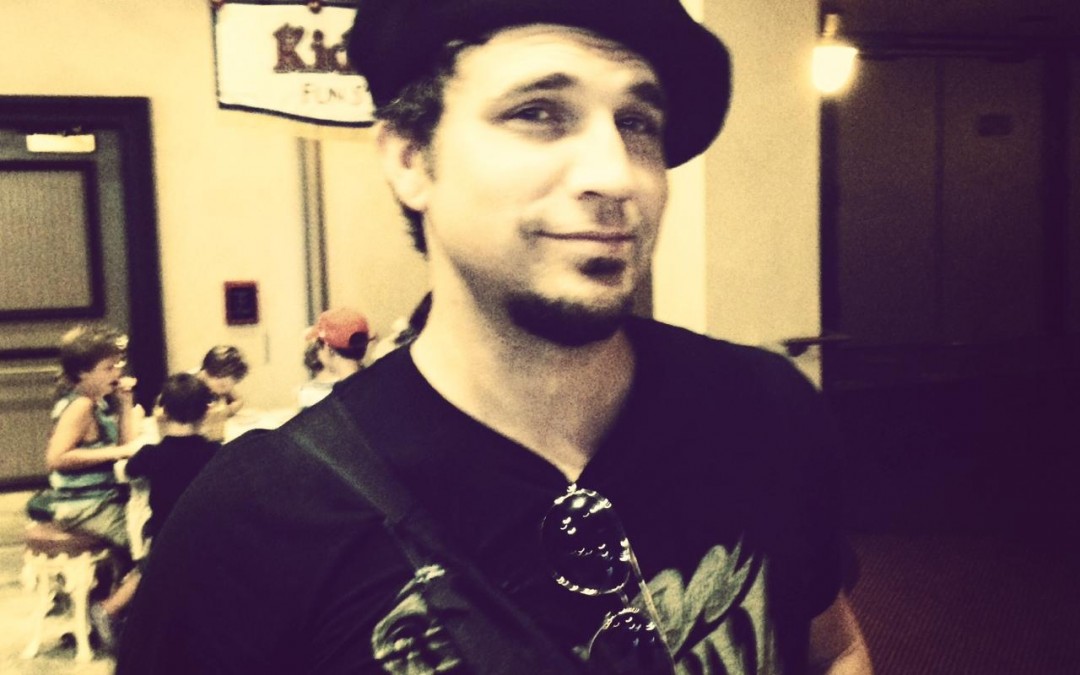
by Rachel Toalson | Wing Chair Musings
We are talking of the future and business plans and all these topics that beckon anxiety from its hiding place, because we’re in such a precarious position with so many unknowns.
He is asking for hope and trust and certainty, and I just can’t give it in light of all those years when plans didn’t work out like we thought they would and disappointment came loping in like a stray dog that thinks it’s home.
What if this new plan ends the same way all the others did?
His eyes, wild and furious, tell me I’ve said exactly the wrong words at exactly the wrong time in exactly the wrong way.
But there are children in the car, so he bites his lip and stares out the front window, and he will not be able to say what he wants to say until we get home and feed kids and put them down for their naps, because there is not a moment alone until we do.
We let the silence speak for us.
My head starts turning it over and over, how maybe I shouldn’t have said what I did, but, God, I’m so tired of arguing about the same old things and having the same old conversations about the same old dilemma, and all those years adding up to tired brought words to my mouth without so much as a second thought.
You can’t take back words.
So they just sit and fester in both our hearts, waiting for boys to sleep so we can fight these wrinkles back into smooth.
///
It took him a while to convince me to spend the rest of my life with him.
There were two other possibilities, a boy destined for politics and another who had a good shot at professional baseball, when he came along. My future husband came crashing through both their plans with his black curls and blue eyes and a voice that could soothe me to sleep when he talked, but especially when he sang.
The problem wasn’t that he was just the tiniest bit dorky or that he wasn’t very good with money or that he wasn’t really sure what he wanted to be when he grew up.
The problem was mostly that when he looked at me, he really looked at me. He really saw. He really knew in the deepest ways a person could know.
It unsettled me. I was so good at hiding feelings and pretending that life’s hard punches hadn’t even winded me and constructing this identity of a laid-back girl who had her whole life figured out.
I worked so hard to lock away those secret places.
And here was a boy-man dismantling all the walls and staring into the bare places and shouting that what he saw—all the ugliness curled inside a little girl’s heart—was actually beautiful.
But I wasn’t ready, and I wasn’t sure he was The One, and I couldn’t really tell if this was love or just hope.
But mostly I was afraid of the greatness he saw in me.
I held him at arms’ length for as long as I could, and then I gave in.
He slipped a ring on my finger, and we stepped into forever.
///
He still knows in the deepest ways a person can know.
When I say there’s nothing wrong in that specific tone of voice, he knows it means there really is, but I’m just not ready to talk about it yet.
When I say I had a hard time writing today, he knows it’s because it’s the last day of the month and tomorrow I’ll have to sit in front of a computer and try to reconcile our budget.
When I say I need to go to Wednesday night church, he knows it’s because I just need time to myself, without anyone bothering me or trying to get my attention or asking me for something.
He just knows.
He knows how I’ll respond or react before I do. He knows what I’m feeling before I can even articulate the words. He knows my motivations and my fears and my shaky hope and my annoying realism and the way I tie my shoes with two bunny ears and how I’ll feel about my son’s playground experience today and the words I’ll say about the one who won’t leave us alone at bedtime and what I think about the book I’ll pull open tonight.
Living together, scraping against each other’s edges, sharpening the iron strength of another for as long as we have means that you really, really know someone in the deepest places. You know how they’re feeling and how they see the world today and what they need at just the right times.
It can feel scary to be known this way. When we are known, we have no place to hide. When we are known, we are vulnerable.
When we know, we see all their vulnerable.
This knowing can turn cruel, and sometimes it does, taking its anger-shot at the exact place it will hurt the most.
When you know someone, you know how to aim your punch.
This is part of the marriage story, too.
///
I had never met anyone quite like him before.
When I was sick, he stayed by my side, holding my hair as I bent over the toilet or lying beside me while I burned up with fever or carrying me down fifteen stairs after I broke my foot.
When I spoke, he listened and heard. When I dreamed, he believed those dreams were possible. When I cried, he did not run away.
When I raged, he met the fire.
For the early years of our marriage, I lived with a ball of black in my heart. It spoke of abandonment and fear and a bottomless well of insecurity. Sometimes that ball flew out of my mouth and wrapped around words. Sometimes it took off the screen door of my heart and nailed up a cedar one instead. Sometimes it aimed its arrow and sent hurt into the most tender parts my husband’s heart.
Every single time he forgave. He never held grudges or threatened leaving or wondered if he might do better for himself somewhere else.
Instead, he stood solid against all those years until I began to soften. And then he loved me more gently, more profoundly, more wholly.
I have still never met anyone quite like him.
///
A fight like this one is not the first in the nearly twelve years we’ve been married. Of course it isn’t. Because we’re human. We’re imperfect. We’re selfish.
We speak without thinking.
And when you’ve been married this long, you know what all the words say, but you also learn what the silences between the words say.
In every marriage there come seasons of waking up on a different page in a different book, feeling more like strangers who fight than friends who talk.
We have had days, weeks, months of tension and push-and-pull and butting heads and asking forgiveness, and every single time—every single time—we have walked out of that shaky season stronger than we walked in.
Every single time.
We fought and we disliked and we raged and we cried and we opened our umbrellas and we hid in ditches during those storms that sometimes only dumped rain but sometimes felt like a won’t-survive-it tornado, and through it all we fought for love.
We all say words we don’t mean to the ones we love. And then we all have the privilege of stepping outside ourselves and meeting the other person’s hurt with humility and remorse.
The secret to saving a marriage is not avoiding all the conflicts. The secret is letting go of our pride. Saying we’re sorry. Choosing love over winning.
Forgiving.
It takes time and practice to learn how to fight fair. How to crawl toward forgiveness and redemption and a love wider and deeper and stronger than it was before those storms came rumbling in. How to let conflict rearrange us into better people.
Sometimes, when we are entrenched in those days and weeks and months of conflict, when it feels like we can get nothing right and we can’t say one single word without arguing, we can start to believe that conflict tells the whole story of our marriage.
But if we look closely enough, we’ll see.
Forgiveness after forgiveness, redemption after redemption, this is the whole story of a marriage.
And so, today, while boys eat their lunch, I follow my husband up the stairs and I wrap my arms around him and speak my apology into his ear.
Tears mix on both our cheeks, but that salty water is really sweet. So sweet.
Because it tells the real story of a marriage. The real story of partnership. The real story of love.
(Happy belated birthday, my love. I hope you know all the ways I love you. I hope you know how thankful I am that we can fight and let it rearrange us into better people. I hope you know how glad I am that you unlocked my heart (even if I fought you every step of the way). You are still the most wonderful man I have ever met in my life. I love you truly madly deeply.)

by Rachel Toalson | On My Shelf
On my shelf this week:
Miss Peregrine’s Home for Peculiar Children, by Ransom Riggs
Motherhood Comes Naturally (and Other Vicious Lies), by Jill Smokler
Create Your Writer Platform, by Chuck Sambuchino
The Happiness Project, by Gretchen Rubin
The first is a book club read, and it’s fantastic. Ransom Riggs has himself a new fan. Great writing, great story and great characters (even if they are a little creepy). I don’t usually read horror, but after this one, I might have to get into it! I know I’ll at least read the rest of the Home for Peculiar Children books. I’m also reading another from Jill Smokler (creator of Scary Mommy), another business book from Chuck Sambuchino and a book that’s been on my shelf for a very long time (The Happiness Project). Gretchen Rubin has a new book out, and if it’s anything like this one, I’m sure it will be on my shelf in the coming weeks.
Best quotes so far:
“If you don’t have a proven ability to promote your work and sell books, editors won’t even consider your idea, no matter how clever or timely it may be. If you want to write a nonfiction book, you must have a platform in order for editors to consider your work. If you’re writing fiction or memoir, a platform isn’t mandatory, but it will certainly help your chances (especially with memoir)—and it translates to more book sales and money for you once your title is released.”
Chuck Sambuchino
“Although we presume that we act because of the way we feel, in fact we often feel because of the way we act.
Gretchen Rubin
Read any of these? Tell us what you thought.











